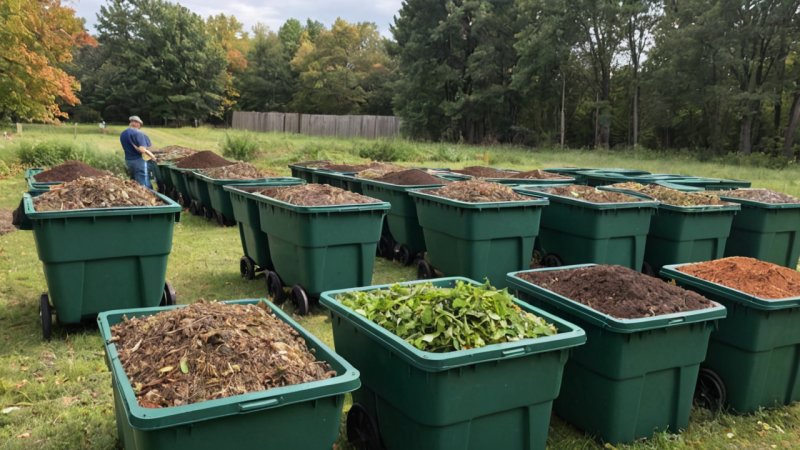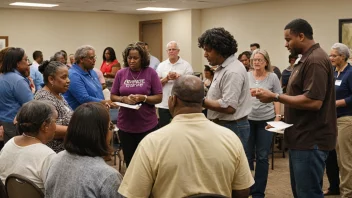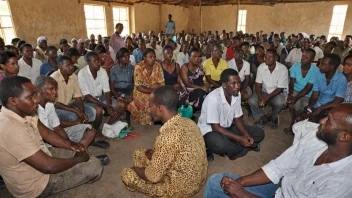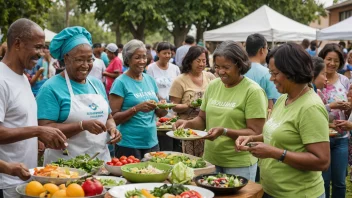Composting is an effective way to reduce waste, enrich soil, and contribute to environmental sustainability. By establishing a local composting program, communities can work together to minimize landfill contributions and promote organic waste recycling. This article addresses common questions about setting up a composting initiative in your community.
What is composting?
Composting is the natural process of recycling organic matter, such as food scraps and yard waste, into a valuable fertilizer known as compost. This process helps to reduce the amount of waste sent to landfills and encourages the return of nutrients to the soil.
Why is composting important for the environment?
Composting offers numerous environmental benefits, including:
- Reduction of landfill waste: Composting diverts organic materials from landfills, where they would produce methane, a potent greenhouse gas.
- Soil enrichment: Compost adds essential nutrients to the soil, improving its health and fertility.
- Biodiversity support: Healthy soils encourage diverse plant and animal life, contributing to a balanced ecosystem.
How can I start a local composting program?
Starting a local composting program involves several steps:
- Gather community support: Engage local residents, schools, and organizations to gauge interest and build a team.
- Choose a composting method: Decide between options such as backyard composting, community compost bins, or vermicomposting (using worms).
- Find a suitable location: Identify a space that is accessible and appropriate for composting activities (e.g., parks, community gardens).
- Educate the community: Provide workshops and informational materials on what can be composted and the benefits of composting.
- Establish guidelines: Create clear guidelines for participants regarding what materials are acceptable and how to maintain the compost.
What materials can be composted?
Common compostable materials include:
- Kitchen waste: Fruits, vegetables, coffee grounds, eggshells, and grains.
- Yard waste: Grass clippings, leaves, branches, and garden trimmings.
- Avoid: Meat, dairy, oils, and processed foods, which can attract pests and create odors.
How can I get the community involved in composting?
Engaging the community is crucial for the success of your composting program. Here are some strategies:
- Host events: Organize community clean-up days or composting workshops to raise awareness and involvement.
- Incentivize participation: Consider offering rewards or recognition for those who regularly contribute to the composting effort.
- Utilize social media: Create a dedicated online space for sharing tips, success stories, and updates on the composting program.
What challenges might I face when starting a composting program?
Some common challenges include:
- Resistance to change: Some community members may be hesitant to adopt new practices.
- Pest management: Proper composting techniques must be followed to minimize odors and pests.
- Maintenance: Regular upkeep is necessary to ensure the composting process is effective.
How can I measure the success of my composting program?
Success can be measured through various indicators, such as:
- Volume of compost produced: Track the amount of compost generated over time.
- Community participation: Monitor the number of active participants and their engagement levels.
- Environmental impact: Evaluate the reduction in waste sent to landfills and improvements in soil quality.
In conclusion, starting a local composting program can have a profound impact on your community and the environment. By addressing common questions and concerns, you can empower your community to take meaningful action toward sustainability. With dedication, education, and collaboration, your composting initiative can foster a healthier ecosystem and inspire others to follow suit.






